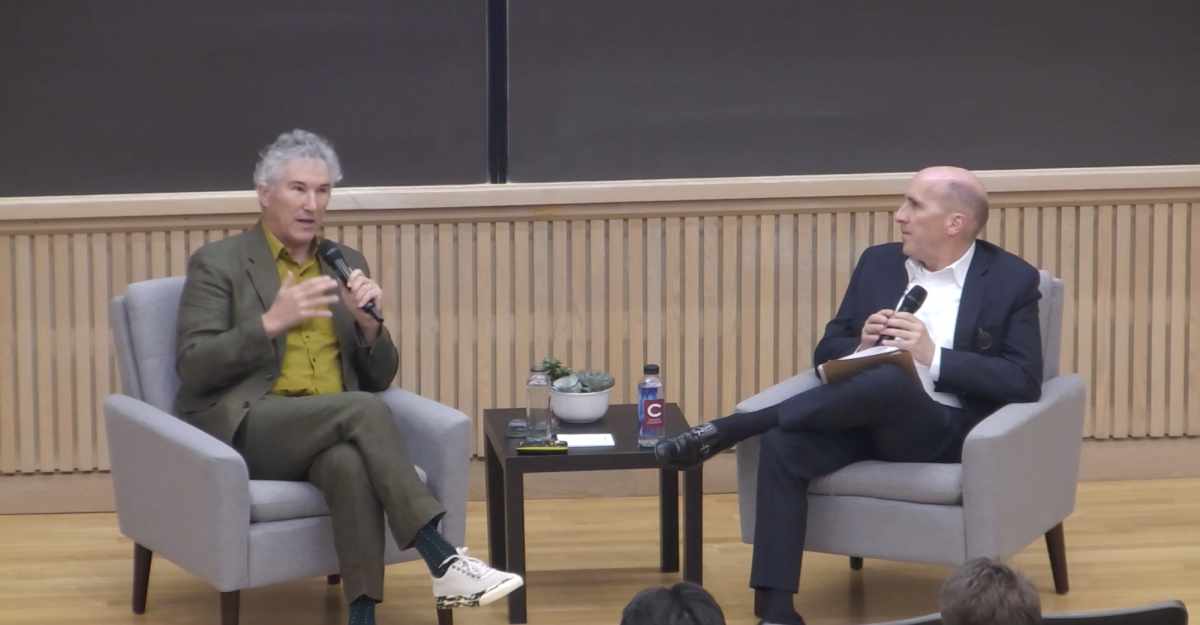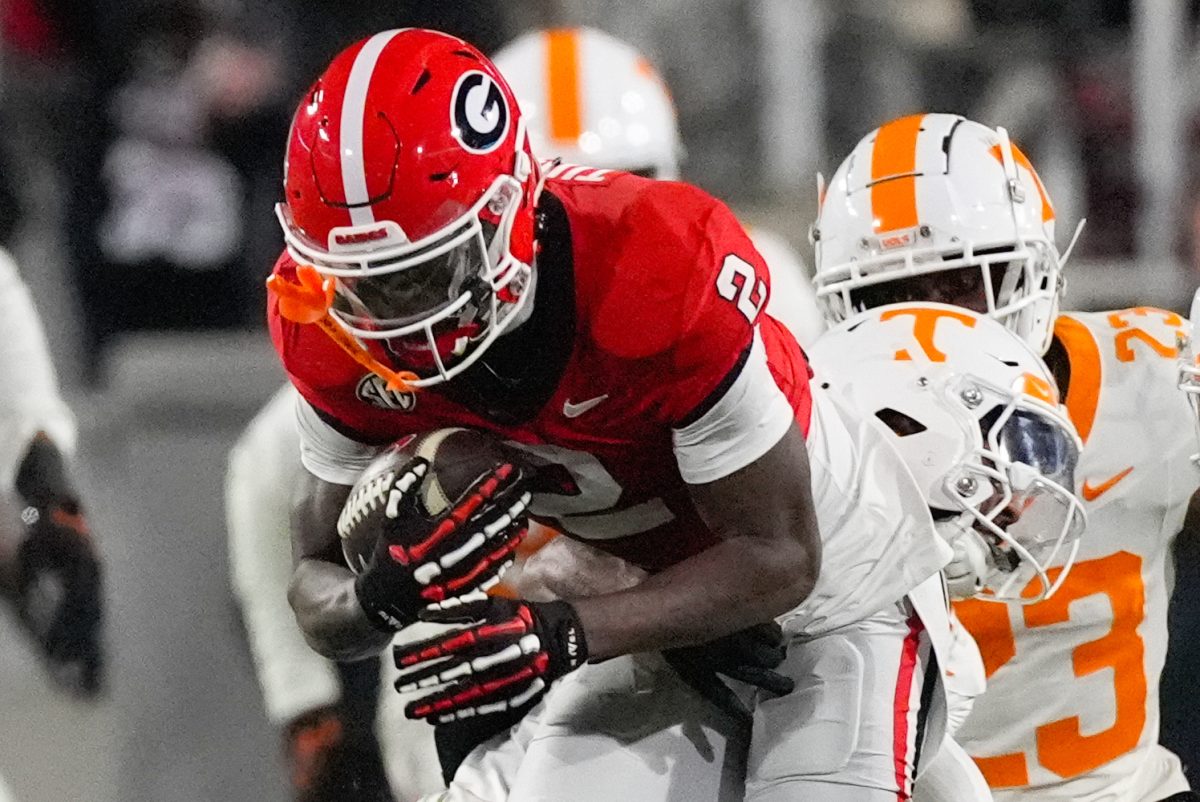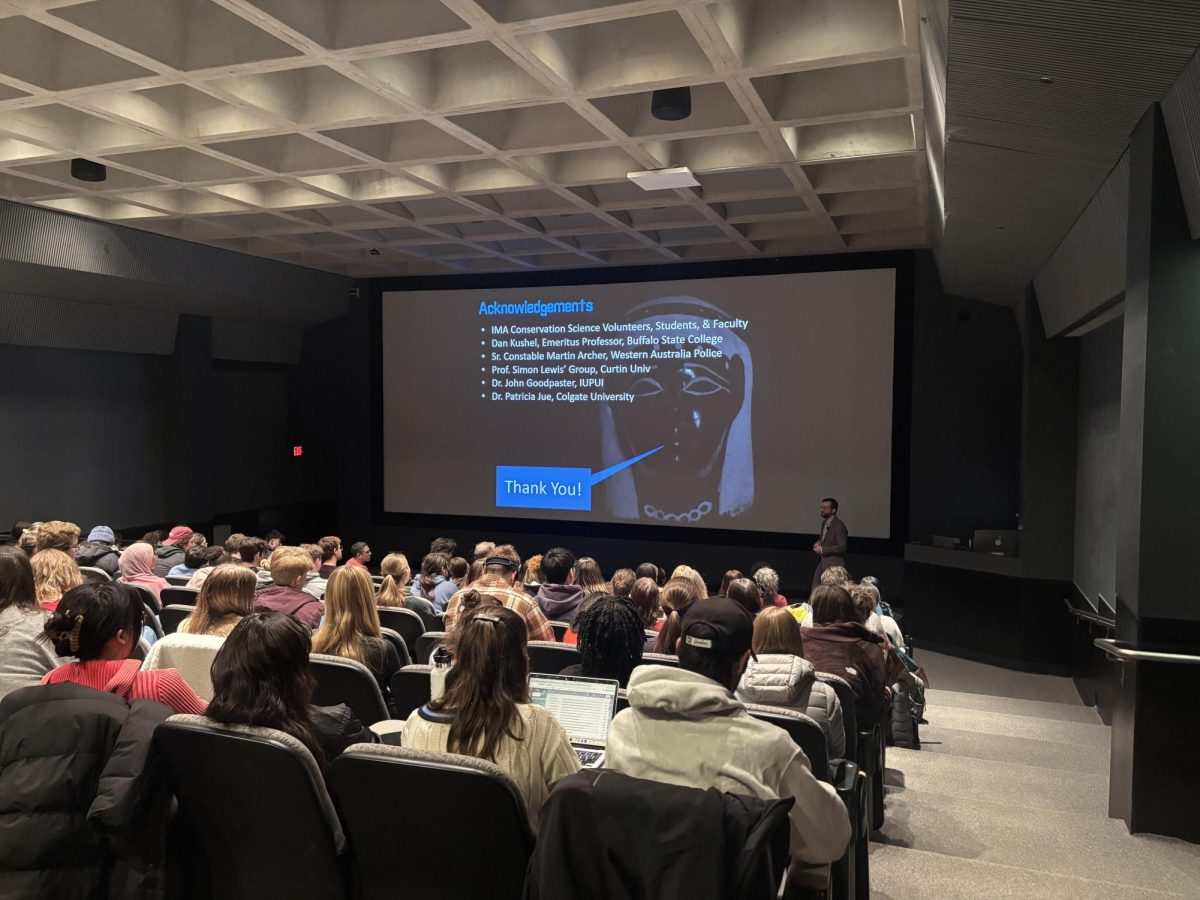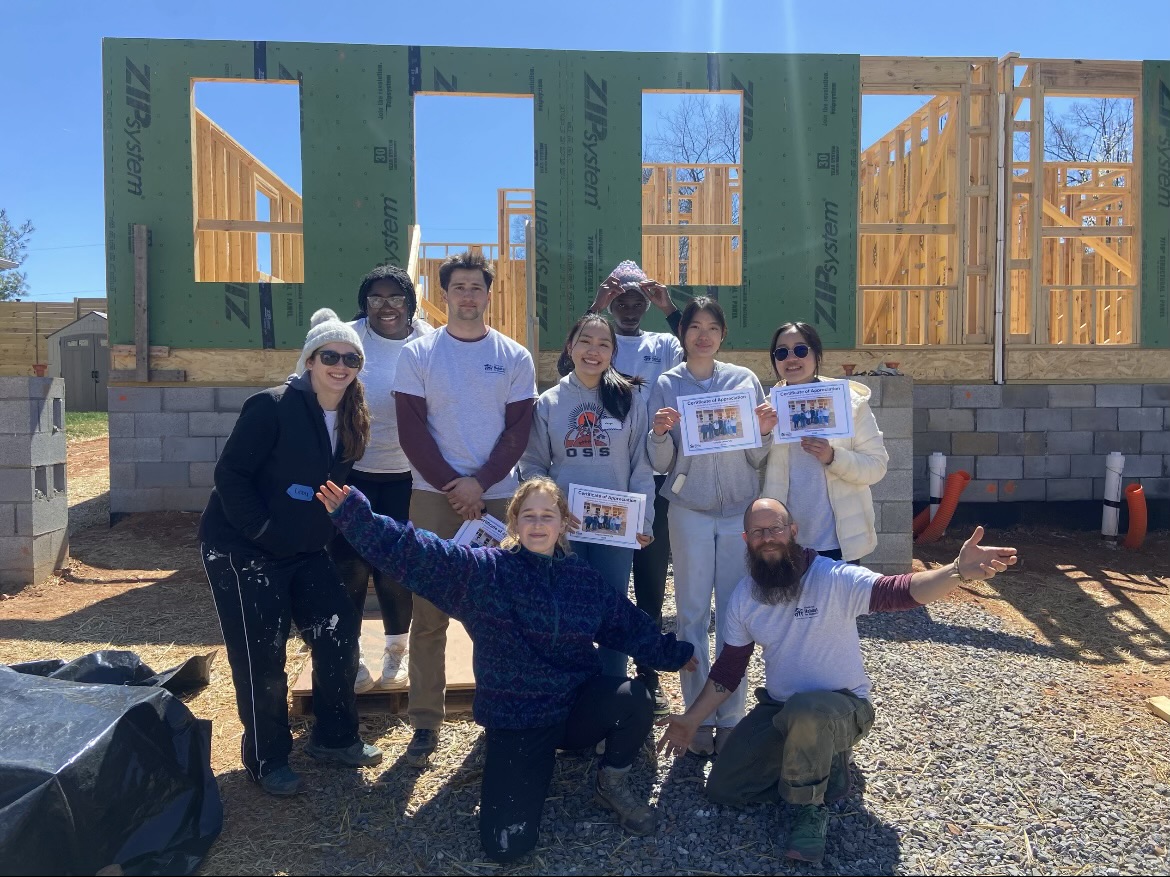The philosophy and religion departments at Colgate University hosted Christophe Ringer, associate professor of theological ethics and society at the Chicago Theological Seminary, to give a lecture on Dec. 3. The lecture was co-sponsored by M. Holmes Hartshorne Annual Memorial Lecture Fund.
Guided by the philosophy of cultural historian Charles Long, Ringer discussed multiple interpretations by prominent scholars of religion in our “carceral democracy” and explained the importance of religion in shaping society.
“[Religion to Long was] that which orients us towards questions of ultimate concern. The study of religion is the stuff of human experience, the data of human experience,” Ringer said.
Similarly, Ringer’s research focused on the relationship between “self, society, and the sacred.” Ringer examined how incarceration is a central part of the enlightenment ideals of liberty in America. Citing author Anthony Pinn, Ringer explained how Black religion produces a complex subjectivity of life that does not conform to the identities forced upon black people by societal expectations. Tying together Pinn’s ideas of self-liberty and fulfillment, Ringer argued that Black religion empowers its followers to question the society around them.
Ringer then discussed authors, including Joshua Dubler and Vincent W. Lloyd, who study secularism and the privatization of religion in America.
“These texts are animated by a deep concern for the truncation of the power and potential of religion to foster social change by the limits of religion prescribed by secularism, as well as a kind of mourning for the loss of an assumed moral coherence provided by religious institutions,” Ringer said.
These authors prompted a discussion of the role of Black religion in the Black Lives Matter movement as a more subjective and interior way to define freedom. Ringer closed his lecture by asking a question central to Black utopianism: “How [can we] attempt to realize an ideal image of humanity by a humanity that’s not undergone a process of change?”
First-year Emma Lepkowicz, who generally attends natural sciences lectures, was excited to hear a lecture in a different department. One of her biggest takeaways was that religion is far more prevalent in every area of society than one might think.
“I hadn’t really perceived the Black Lives Matter movement as largely religious until this, but when [Ringer] mentioned that the protests felt like a church, I thought that was really interesting,” Lepkowicz said.
First-year Megan Sweatt attended Ringer’s lecture, hoping to take advantage of the wide range of intellectual opportunities that Colgate offers.
“These social movements can be religious in the sense that they bring people together with common goals,” Sweatt said. “We all are on social media and are apart of different movements in our lives — in that sense, we are coming together in groups as a form of religious practice.”
Both students left Ringer’s lecture with new ways to think about the role religion plays in our society as well as a desire to continue to educate themselves on the topic.














